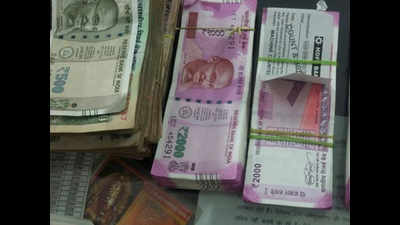- News
- City News
- delhi News
- Delhi Commission for Women asks couple to pay Rs 2 lakh to help
Trending
This story is from February 23, 2017
Delhi Commission for Women asks couple to pay Rs 2 lakh to help

(Representative image)
NEW DELHI: The Delhi Commission for Women has directed a couple accused of denying wages to a domestic worker for two years to pay her Rs 2,18,717 within seven days. The commission has put the onus of ensuring compliance of this order on the labour department.
In the same order, DCW said that since the 25-year-old victim had been declared a bonded labour by the sub-divisional magistrate of Punjabi Bagh, she was entitled to a compensation of Rs 3 lakh under the revised central scheme for rehabilitation of bonded labour that came into effect in 2016.The woman’s home district in Jharkhand is supposed to pay her this compensation. DCW has, therefore, directed the magistrate to issue a bonded labour certificate to the woman to facilitate the compensation process when she returned to home. Currently lodged in a temporary shelter in Delhi, the woman is to be repatriated to Jharkhand by Delhi Police.
In the February 17 order, DCW chairperson Swati Maliwal recalled that the commission, with Delhi Police, had rescued the woman in May last year from an apartment in Paschim Vihar following a complaint by NGO Shakti Vahini. A placement agency had been involved in bringing the woman from Jharkhand, but the agency owner had not been traced.
“The victim alleged that she was not allowed to step out of the house and was beaten up frequently by her employers. Further, she alleged that she was not paid any wages. She also alleged that she was not given food properly by the house owners,” DCW noted.
In the same order, DCW said that since the 25-year-old victim had been declared a bonded labour by the sub-divisional magistrate of Punjabi Bagh, she was entitled to a compensation of Rs 3 lakh under the revised central scheme for rehabilitation of bonded labour that came into effect in 2016.The woman’s home district in Jharkhand is supposed to pay her this compensation. DCW has, therefore, directed the magistrate to issue a bonded labour certificate to the woman to facilitate the compensation process when she returned to home. Currently lodged in a temporary shelter in Delhi, the woman is to be repatriated to Jharkhand by Delhi Police.
In the February 17 order, DCW chairperson Swati Maliwal recalled that the commission, with Delhi Police, had rescued the woman in May last year from an apartment in Paschim Vihar following a complaint by NGO Shakti Vahini. A placement agency had been involved in bringing the woman from Jharkhand, but the agency owner had not been traced.
“The victim alleged that she was not allowed to step out of the house and was beaten up frequently by her employers. Further, she alleged that she was not paid any wages. She also alleged that she was not given food properly by the house owners,” DCW noted.
After hearing both sides, DCW established that the victim was engaged to work as a domestic worker by the employers through the Kamat Placement Agency. The employers told the commission that they paid the placement agency, not the woman, Rs 22,000 in the first year, Rs 13,000 in the next six months and Rs 6,600-7,000 for the next three months. They conceded that wages for 18 months remained unpaid. But since they had no receipts to substantiate the payments made to the placement agency, DCW ordered the payment of wages for the entire period from May 2014 to May 2016.
End of Article
FOLLOW US ON SOCIAL MEDIA










